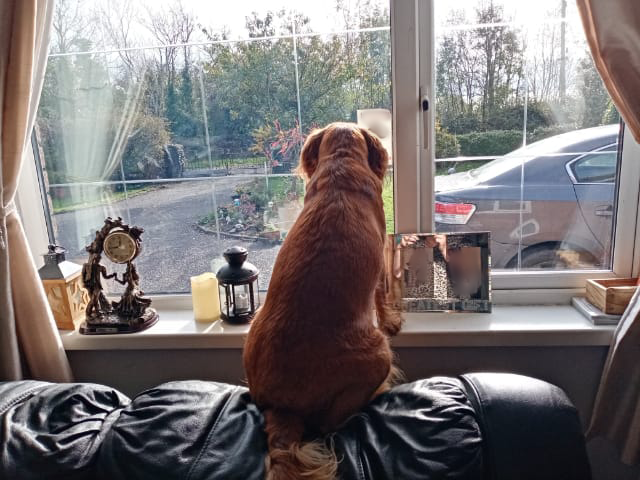Emergency Foster Care
|
| |
|---|---|
Is where a child needs a safe place to stay in an emergency. Emergency care is time limited | You may want to help but are not in a position to commit long term |
A few weeks of support can change a life forever. Just ask John*, who at 17 years of age went into emergency foster care with Margaret and Alan, from Co. Louth.
“He stayed with us for two-and-a-half weeks,” mum-of-four Margaret recalls. “We helped him to see that he was important, and we helped to keep him sane; to see that he could have a good future ahead for himself, and to get back into school to do the Leaving Cert.
“For his 18th birthday ourselves, the children and grandchild brought him out to dinner – we were the only ones who visited him; we were the only ones seeing him.
“After he reached 18, he was living in homeless shelters but still going to school. Life is good now and he’s very happy in college in Maynooth,” she adds.
John’s experience shows the huge impact that short-term emergency care can have on a young person.
When a child comes into care or when the long-term foster care a child is receiving has broken down, due to challenging behaviour, that’s when the likes of Margaret and Alan are called on, usually at very short notice.
“They can arrive at all hours,” she says. “I don’t want to know an awful lot of information before they come because I don’t want to be pre-judging them. Other than the basics, we can work out the rest between ourselves over hot chocolate or a game of cards.
“Patience and empathy are the most important things when it comes to emergency care,” says Margaret (60), who started fostering just six years ago, and who mainly supports children aged between 13 and 17-and-a-half.
“We’re there to give them a listening ear. We give them time… let them relax. Usually there’s no major drama. They usually just want to chill. All the teens we’ve had have been brilliant.”
Margaret explains one placement in which she cared for a boy
Margaret and Alan have supported 60 children over the years. Now, they also take in unaccompanied minors from Ukraine, and one little boy currently in their care has proved a great help in getting them to settle in, too.
“He’s a very sporty boy and very chatty. He interacts well with the Ukrainian children,” she says. “He’s not a bold boy… just a normal child, but one who has no home. I remember asking him what he would like for Christmas, and he said: ‘I’d like a home that I don’t have to keep moving from’.”
It’s encounters like that which opened up Margaret’s and her family’s eyes to the lives of others. She recalls how she and Alan took in an eight-year-old girl with severe autism…
“I thought initially that she understood nothing until one day when I was on the phone talking to the social worker and I saw her looking at me. I could tell that she knew I was talking about her. From that moment on things changed. I never pre-judge people now.”
Emergency foster carers can be called on at all hours to support children who have experienced traumatic circumstances, but the benefits of the role outweigh any initial concerns that Margaret and her family may have had.
If the couple need support, they can contact their Tusla link worker on a daily basis, and the out of hours service in the evening.
“We were pleasantly surprised. It wasn’t as difficult as we thought. We expected it to be more draining. We find it invigorating – you can make such a difference. I know we’ve had a big impact on their lives.
“It’s very rewarding – even if they’re only with us a couple of days. They leave relaxed, knowing they are going into foster care.”
There are other benefits, too…
“It keeps me young… it’s a great excuse to go to the cinema or go bowling,” she adds, laughing.
Margaret says she leaves a teddy on the bed for younger children and, when they do eventually leave, she gives them a Good Luck card and a gift – “or a card and some money for the older ones”.
 The Louth woman admits that she has one secret weapon in her arsenal of love that always seems to work… her two dogs, a shih tzu and a retriever called Pip and Arlo.
The Louth woman admits that she has one secret weapon in her arsenal of love that always seems to work… her two dogs, a shih tzu and a retriever called Pip and Arlo.
“They are fantastic for the kids. When children arrive and are having a cup of tea, the dog puts its head in their lap. Kids coming into care often miss their pets and if a dog is looking at you with adoring eyes, as if you are the most important person in the world, then that helps the child feel wanted.”
Motherly advice, gifts, dogs… there’s a lot of generosity going on with this woman.
“It’s easy because the children give back as much as I put into them,” says Margaret.
Without emergency carers like her, many vulnerable youngsters could be in a far worse condition.
It takes all kind of people to raise a child, and if you have the temperament, and are the right fit, then you could well be the perfect foster carer to provide a stable environment for one of the many vulnerable youngsters who need your help.
Margaret and Alan are two of almost 4,000 foster carers from all walks of life who provide loving homes to more than 5,800 children.
To find out more about becoming a foster carer, see fostering.ie, call freephone 1800 226 771, email tusla.fostering@tusla.ie
*Names and details of the children mentioned have been changed

